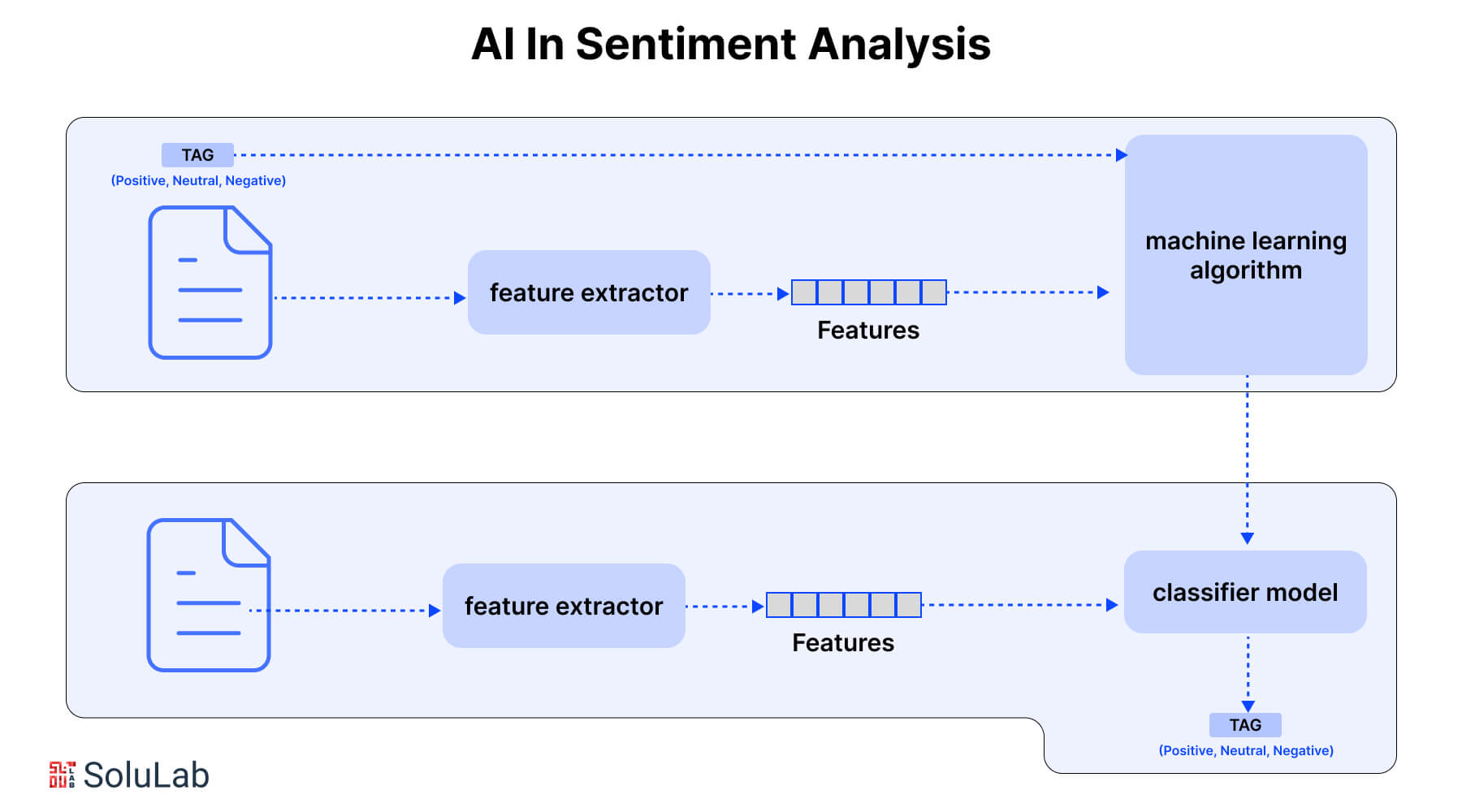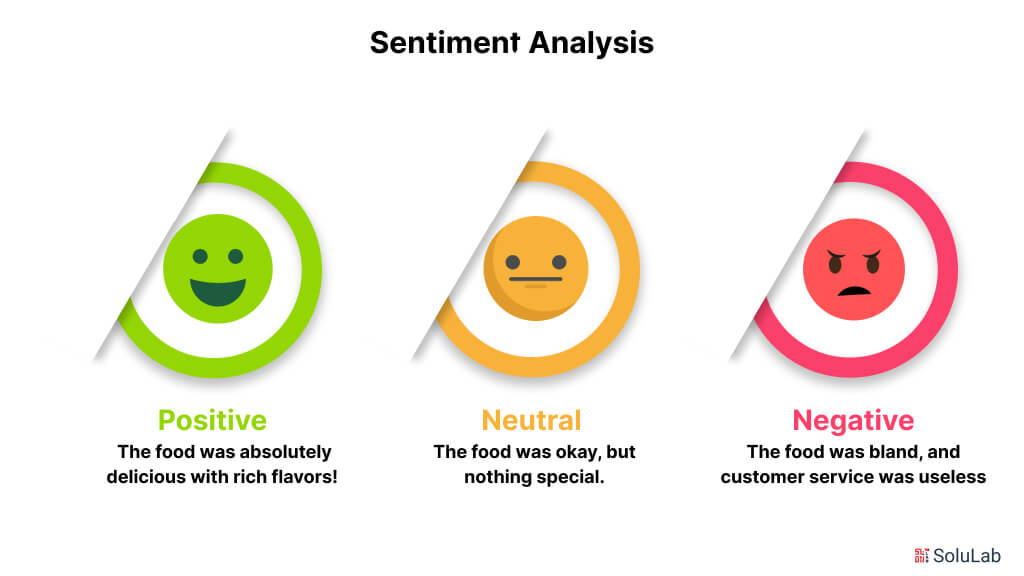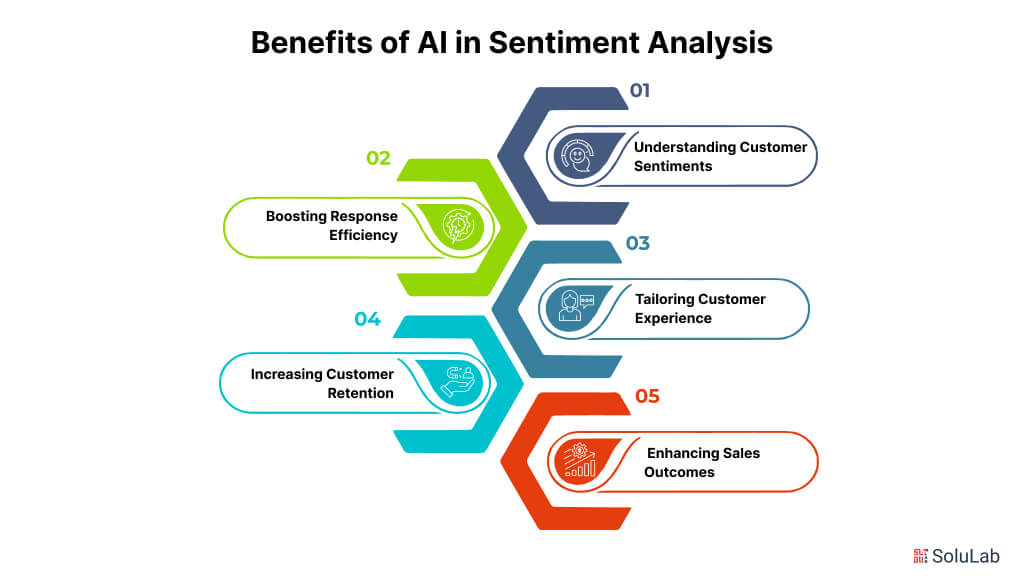
In the business world and among consumers, AI software has found a myriad of applications. These tools, often in the form of voice assistants and chatbots, are commonly used for communication with mobile devices. Organizations have also benefited from these solutions, enhancing the effectiveness of sales, marketing, and customer service.
According to the Research Center’s 2017 study:
- 55% of users cite hands-free device interaction as the primary reason for using voice assistants.
- 22% of users prefer speaking to voice assistants over typing.
- 26% of users use voice assistants to remotely connect with other systems.
- 39% of users report that voice assistants accurately respond to their commands.
In 2020, a total of 4.2 billion voice assistants were used in devices globally, as reported by Statista. A survey conducted by Statista in 2020 revealed that 75% of senior IT executives from diverse countries agree that adopting AI technology will bolster network security. Statista suggests that utilizing AI technology for environmental applications can contribute to a higher net employment growth rate on a global scale.
What Is Sentiment Analysis?
Sentiment analysis, often known as opinion mining, is a technique for detecting and evaluating feelings expressed in a text. Its primary goal is to determine whether the sentiment toward a particular topic, product, or service is positive, negative, or neutral. This process involves utilizing ai in sentiment analysis and natural language processing (NLP) to interpret human language and its complexities, enabling machines to comprehend and respond to our emotions.
Imagine this process as akin to mining a treasure trove of data, unearthing hidden nuggets of sentiment that can provide valuable business insights. Instead of conducting rudimentary sentiment analysis that merely scratches the surface, businesses can delve deeper using advanced AI techniques.
To illustrate, let’s consider three examples:
- Sentiment analysis determines the sentiment, whether positive, negative, or neutral, of customer reviews and social media comments.
- Positive sentiment is conveyed through words like “love,” “friendly,” and “quick.” For instance, a positive review might read, “I love the friendly staff and quick service at this restaurant.”
- Mixed sentiment occurs when a review has both positive and negative aspects. For example, “The laptop is good, but it overheats too quickly.”
- Neutral sentiment expresses neither positive nor negative opinions, such as “The book was received on time.”
- Sentiment analysis helps businesses go beyond basic metrics, enabling them to extract valuable insights from customer conversations and social media.
- Through sentiment analysis, businesses gain a deeper understanding of customer sentiments, leading to improved customer experiences and enhanced product or service offerings.

Types Of Sentiment Analysis
Sentiment analysis encompasses various analytical methods that assist in comprehending the sentiment or emotional undertones behind textual data. Here are four notable types:
1. Aspect-Based Sentiment Analysis: This approach delves into the sentiment associated with specific product or service aspects. Rather than simply determining positive or negative sentiment, it investigates the sentiment towards individual features or aspects. For instance, in a restaurant context, aspects might include “food quality,” “ambiance,” and “service speed.”
2. Fine-Grained Sentiment Analysis: This technique refines sentiment polarity by differentiating degrees of sentiment. Instead of categorizing sentiments as positive, negative, or neutral, it classifies them into more granular categories, such as “very positive,” “somewhat positive,” “neutral,” “somewhat negative,” or “very negative.” This is particularly valuable for detailed analysis of reviews or ratings, providing a nuanced view of customer sentiments.
3. Emotion Detection: This form of sentiment analysis pinpoints specific emotions within textual data. Rather than determining positive, neutral, or negative sentiment, it categorizes the emotions expressed in the text, such as joy, surprise, anger, sadness, fear, and so on. This approach offers a deeper comprehension of the user’s emotional state.
4. Intent Analysis: This type of sentiment analysis aims to understand the intention or goal behind a particular text. By identifying the underlying intent, organizations gain insights into customer behavior, enabling them to anticipate future actions and adjust their strategies accordingly. It’s particularly valuable in scenarios like customer service, where predicting a customer’s behavior can facilitate effective response planning.
What Is AI-based Sentiment Analysis?
What is sentiment analysis in AI is the process of using Natural Language Processing (NLP) techniques to analyze large amounts of digital text input and determine the emotional context of the text. A subset of artificial intelligence, sentiment analysis involves tools that scan the input to identify keywords and assign each keyword a score based on its associated emotion. The sentiment of a sentence can be labeled as positive, negative, or neutral based on this score. There can also be a “mixed” sentiment label without a score. The overall sentiment of a document with multiple sentences is determined by aggregating the sentence scores.
Why Do We Need AI-based Sentiment Analysis?
Understanding customers’ opinions is vital for improving products and services. Traditionally, companies relied on surveys and focus groups to gauge customer sentiment. However, with the vast amount of customer feedback available through various touchpoints, manual analysis is challenging and time-consuming. The advent of big data analytics has introduced AI-powered tools to process large volumes of data, providing a more accurate understanding of customer opinions. Sentiment analysis in AI offers objective insights at scale and in real-time.
For instance, consider a customer support chatbot conversing with a customer. Based on keywords in the customer’s messages, the chatbot identifies the emotional context of the conversation. This real-time sentiment tracking enables AI chatbots and virtual assistants to tailor their responses accordingly. If the customer expresses dissatisfaction, the chatbot can respond empathetically and offer solutions aligned with the detected sentiment. This information can be used to enhance chatbots’ capabilities, providing more human-like experiences.
DO YOU KNOW?
The global AI market is expected to reach $1.81 trillion by 2030.
How Does AI In Sentiment Analysis Work?
Incorporating AI into sentiment analysis involves several key components. These components work together to streamline the analysis of textual data, derive meaningful insights, and aid in decision-making. This advanced approach transcends traditional sentiment analysis methods by leveraging powerful AI Tools for Sentiment Analysis and seamlessly integrating them with an organization’s unique knowledge base. This architecture enables a more profound understanding of sentiment, as it meticulously analyzes the context, nuances, and underlying emotions embedded within textual data. As a result, businesses gain comprehensive sentiment insights, empowering them to make well-informed decisions that positively impact their overall performance. Here’s a step-by-step breakdown of the sentiment analysis process using this LLM-based architecture:
- Data is collected from various sources like social media, customer reviews, surveys, and call center transcripts.
- Data pipelines process the data for ingestion, cleaning, and structuring.
- Processed data is converted into numerical vectors using embedding models.
- The resulting vectors are stored in a vector database.
- APIs and plugins facilitate additional functionalities and link components.
- An orchestration layer manages the workflow.
- Users submit queries to the sentiment analysis application.
- The orchestration layer retrieves data from the vector database and LLM cache.
- The suitable LLM is selected based on the query’s nature.
- The LLM produces an output based on the query and data received.
- The verified output is presented to users through the sentiment analysis app.
- User feedback is used to improve accuracy and relevance over time.
- AI agents address complex problems, interact with the environment, and enhance learning.
- Tools help cache frequently accessed information, log actions, and monitor performance.
- Validation tools ensure accuracy and reliability.
- LLM APIs and hosting platforms execute sentiment analysis tasks and host the application.
- This architecture leverages diverse data sources and advanced tools to deliver precise and actionable insights on customer sentiments.
Benefits Of AI-based Sentiment Analysis

Sentiment analysis, a subset of AI, uses Natural Language Processing (NLP) techniques to analyze large amounts of digital text input and determine the emotional context of the text. This process involves scanning the input for keywords and assigning each keyword a score based on its associated emotion. The sentiment of a sentence is labeled based on this score, and the overall sentiment of a document is determined by aggregating the sentence scores.
AI-based sentiment analysis offers several benefits, including:
1. Understanding Customer Sentiments
AI sentiment analysis use cases powered by AI enable businesses to comprehend their customers’ emotions during interactions. By evaluating conversations’ tone, vocabulary, and intensity, companies can discern whether customers are delighted, frustrated, or disappointed. Equipped with this information, customer service representatives can tailor responses to reflect customer emotions, creating an empathetic and positive experience.
2. Boosting Response Efficiency
Sentiment analysis expedites responses to critical customer interactions. By gauging sentiments, tools can identify urgent or significant concerns requiring immediate attention. This enables businesses to prioritize responses, addressing pressing matters like product flaws and enhancing response efficiency.
3. Tailoring Customer Experience
Sentiment analysis fosters personalized customer service experience. Tools discern customers’ interests, preferences, and challenges based on service interactions. This allows businesses to customize responses and suggestions, ensuring a good experience.
4. Increasing Customer Retention
Identifying the root causes of customer dissatisfaction through sentiment analysis bolsters customer retention. By examining sentiments, businesses can detect recurring issues and trends that lead to customer attrition. This knowledge facilitates proactive measures to enhance customer satisfaction and loyalty.
5. Enhancing Sales Outcomes
Applications of AI Sentiment Analysis transform sales outcomes. Analyzing sentiments in sales conversations and outreach provides insights into customer preferences, pain points, and emotional responses. This empowers sales teams to personalize approaches, building stronger relationships and increasing successful deals. Sentiment analysis also helps sales leaders identify patterns in customer sentiment over time, informing data-driven decisions on sales strategies and approaches. Ultimately, sentiment analysis enables more effective and personalized sales conversations, leading to enhanced customer satisfaction and improved sales outcomes.
Examples of implementing AI in Sentiment Analysis
Sentiment analysis, powered by artificial intelligence (AI), offers businesses the ability to analyze large volumes of text data and uncover the underlying sentiments and emotions expressed within. This technology plays a crucial role in understanding customer feedback, improving customer service, and making informed decisions.
- Social Media Analysis: AI-powered analysis tools can analyze conversations on platforms like Twitter, identifying trends and changes in customer sentiment toward specific products, brands, or industries. For instance, restaurants can track mentions of “food quality,” “ambiance,” or “service speed” to gain insights into public opinion and emerging trends.
- News and Content Analysis: AI can process vast volumes of news articles and online content, detecting emerging topics, keywords, and sentiment shifts within specific industries. This allows businesses to stay informed about market trends and adjust their strategies accordingly.
- Customer Behavior Analysis: By examining large datasets of customer interactions, purchasing histories, and online activity, AI can reveal patterns in consumer behavior. This analysis helps businesses predict customer behavior, plan effective marketing and communication strategies, and make informed decisions.
- AI-Powered Sentiment Analysis: This analysis assesses whether a brand’s messaging aligns with customer perceptions. By identifying sentiment shifts, companies can refine their communication strategies, adopt a customer-centric approach, and create a brand image that resonates with their audience. NLP sentiment analysis plays a crucial role in this process by analyzing the nuances of language and context in customer feedback.
Use cases of AI-enabled sentiment analysis across industry verticals

Sentiment analysis is a powerful tool for businesses to understand customer emotions and opinions. It involves analyzing text data to identify the sentiment expressed by the author. AI-powered sentiment analysis offers several benefits, including understanding customer sentiments, boosting response efficiency, tailoring customer experience, increasing customer retention, and enhancing sales outcomes.
1. Retail
AI-Powered Sentiment Analysis enables retailers to understand customer perceptions of their brand and market trends. Key use cases include analyzing customer reviews, personalizing marketing campaigns, optimizing customer service, guiding product development, performing competitive analysis, and forecasting trends. Sentiment analysis helps identify strengths, weaknesses, and opportunities, leading to improved customer satisfaction, marketing effectiveness, product alignment, and market positioning. Retailers can make informed decisions, achieve sustained growth, and gain a competitive advantage by leveraging these insights.
Check Out Our Case Study: GenAI in Retail Industry
2. Tourism And Hospitality
AI-powered sentiment analysis presents numerous opportunities for the hospitality industry. It enables businesses to comprehend guest feedback, enhance guest experiences, facilitate real-time service recovery, make strategic decisions, conduct competitor analysis, and detect trends. By utilizing this technology, AI in tourism and hospitality establishments can gain valuable insights, elevate customer satisfaction, and maintain a competitive edge in the industry.
3. Telecommunications
AI-driven sentiment analysis in the telecommunications industry offers a range of use cases to enhance customer experiences, business operations, and strategic decision-making. It enables telecom providers to analyze customer interactions, predict churn, improve service quality, conduct competitive analysis, inform product development, optimize marketing and sales, and make real-time decisions. By leveraging AI in sentiment analysis, telecom providers can gain valuable insights into customer sentiments and preferences, leading to improved customer experiences, increased customer retention, and enhanced business outcomes.
Read Also: DePIN In the Telecom Industry
4. Healthcare
AI sentiment analysis has wide-ranging applications in the healthcare sector to enhance patient care, service delivery, and operational efficiency. It can analyze patient feedback, tailor personalized care, contribute to pharmacovigilance, monitor clinical trials, assist in healthcare marketing, inform policy formulation, and assess mental health. By understanding patient sentiments and emotions, AI in healthcare providers can improve patient experiences, treatment plans, and overall service quality.
5. Banking
AI sentiment analysis has changed the banking industry, enhancing customer experience, risk management, and brand perception. AI in Banking key use cases include customer service improvement through analyzing feedback from various channels, early warning signal detection in credit risk management, customer preference insights for product and service development, understanding overall brand perception, optimizing marketing strategies, customer segmentation for specific communication, and indirect support for fraud detection. AI sentiment analysis empowers banks to make informed decisions and better serve their customers.
Enhancing Sentiment Analysis Efficiency with GenAI
Generative AI has evolved from a visionary concept to an extreme force, balanced to drastically alter sentiment analysis. From streamlining workflows to unlocking profound insights, GenAI is ushering in a paradigm shift in how we comprehend and respond to customer emotions and opinions.
This section explores the various personas involved in sentiment analysis and how their roles align:
1. Sentiment Analysis Business Analyst: Translates business objectives into AI-powered analysis goals. Interprets results, extracting actionable insights.
2. Marketing Manager: Utilizes sentiment insights to optimize marketing strategies, campaigns, and brand perception through AI-Powered Sentiment Analysis.
3. Sentiment Analysis Project Manager: Oversees the entire sentiment analysis lifecycle, from project scoping to optimization and stakeholder communication.
4. Sentiment Analysis Data Scientist: Develops, refines, and optimizes the technical models that drive NLP sentiment analysis.
5. Workflow Integration Engineer: Ensures seamless integration of sentiment analysis into broader data workflows and systems.
Collectively, these personas collaborate to harness the power of GenAI, enabling businesses to gain deeper insights into customer sentiment, optimize decision-making, and drive impactful outcomes.
Challenges with sentiment analysis
While sentiment analysis serves as a valuable tool, it poses certain challenges to users:
1. Contextual Understanding: Artificial Intelligence (AI) sometimes struggles to grasp the context of language, leading to misinterpretations of sentiments. This is particularly challenging when dealing with sarcasm, irony, or cultural nuances.
2. Dataset Privacy: Gathering and analyzing customer data for sentiment analysis raise concerns about data privacy and security.
3. Bias: Humans can incorporate biases into training data, which AI models may follow. This can result in unfair results. Efforts are ongoing to reduce bias and ensure fairness in sentiment analysis.
Business Success with AI-Powered Sentiment Analysis
In today’s data-driven world, understanding customer sentiment is crucial for businesses to make informed decisions and stay ahead of the competition. Sentiment analysis, powered by Artificial Intelligence (AI), has upgraded the way companies analyze and interpret customer feedback, opinions, and emotions. By leveraging AI development company sentiment analysis, businesses can uncover hidden insights, identify areas of improvement, and create personalized experiences that drive customer loyalty and revenue growth.
At SoluLab, we understand the transformative power of AI in sentiment analysis. Our team of experts has extensive experience in developing and implementing Hire AI Developers solutions that help businesses like yours unlock the full potential of their customer data. With our technology and expertise, you can:
- Gain a deeper understanding of your customer’s needs and preferences
- Identify trends and patterns in customer sentiment
- Develop targeted marketing strategies that resonate with your audience
- Improve customer satisfaction and loyalty
- Drive business growth and revenue
By partnering with SoluLab, you can tap into the vast potential of AI-powered sentiment analysis and transform your business into a customer-centric, data-driven organization. Our solutions are designed to be scalable, flexible, and design to your specific needs, ensuring that you get the most out of your customer data.
Take the First Step Towards Business Success
Don’t let your customer data go to waste. Unlock the power of AI-powered sentiment analysis with SoluLab and discover a new world of business opportunities. Contact us today to learn more about our solutions and how we can help you achieve your business goals.
Let’s Unlock Business Success Together!
FAQs
1. What is sentiment analysis in AI, and how does it work?
Sentiment analysis in AI refers to the use of algorithms and machine learning techniques to analyze text data and determine the emotional tone behind it. This process involves various AI Tools for Sentiment Analysis that help businesses gain insights into customer opinions and preferences.
2. How is AI in sentiment analysis beneficial for businesses?
The application of AI in sentiment analysis allows businesses to understand customer sentiments at scale. This can lead to improved customer experiences, better product development, and enhanced marketing strategies by identifying trends and patterns in customer feedback.
3. What are the key components of NLP sentiment analysis?
NLP sentiment analysis incorporates natural language processing techniques to interpret and analyze human language. Key components include tokenization, sentiment scoring, and contextual analysis to derive meaningful insights from text data.
4. How do businesses implement AI-powered analysis in sentiment analysis?
Businesses implement AI-powered analysis by utilizing AI tools for sentiment analysis, which integrate machine learning models with existing data systems. This enables them to automate the sentiment analysis process and derive actionable insights from customer interactions.
5. What industries can benefit from sentiment analysis in AI?
Various industries, including retail, telecommunications, and finance, can leverage sentiment analysis in AI to enhance customer experiences, make data-driven decisions, and improve overall business performance.






